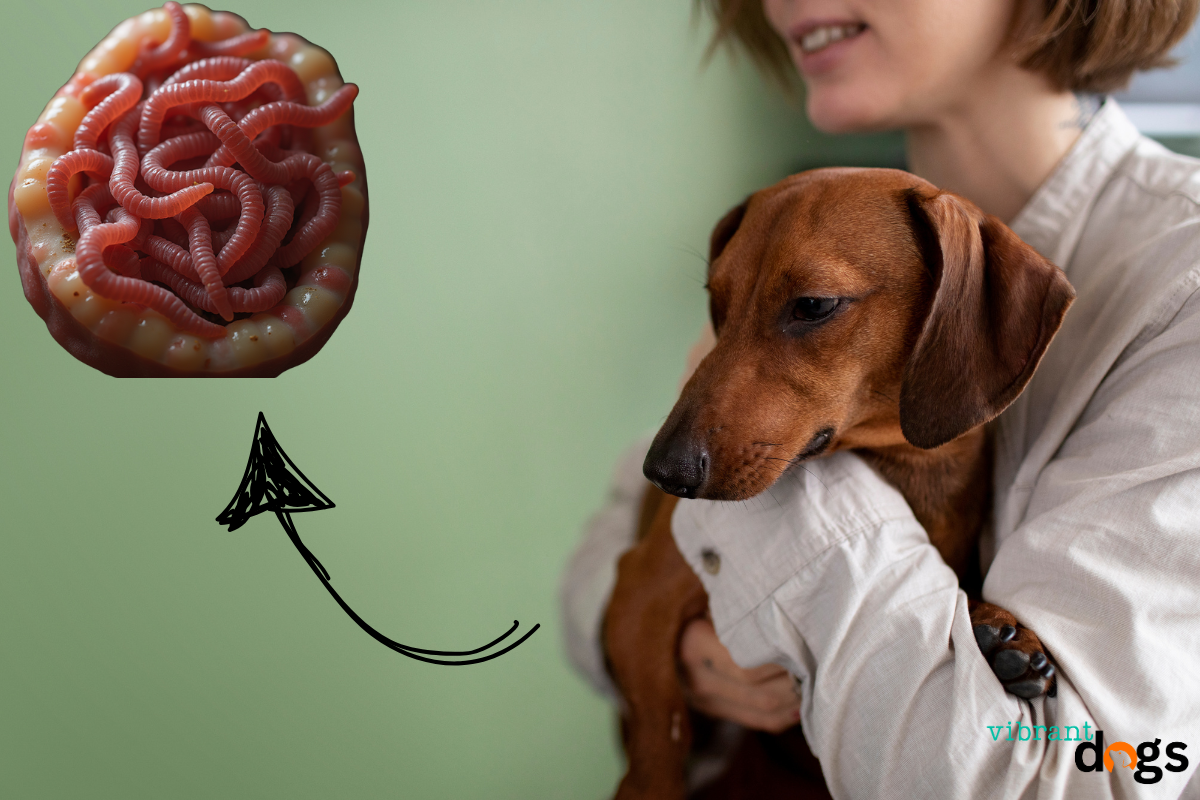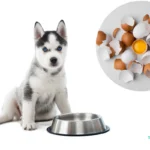Hookworms are a common problem for dogs, causing many health issues. As a pet owner, knowing the signs and how to treat them is key. This guide will help you spot, manage, and prevent hookworms in your dog.
Key Takeaways
- Hookworms are a common parasitic infection in dogs that can lead to serious health problems if left untreated.
- Recognizing the early warning signs of hookworm infection, such as anemia, weight loss, and diarrhea, is crucial for timely diagnosis and treatment.
- Effective treatment options, including deworming medication and supportive care, can help eliminate hookworms and restore your dog’s health.
- Preventive measures, including environmental control, dietary considerations, and good hygiene practices, can help reduce the risk of hookworm infection in your canine companion.
- Prompt treatment and proper prevention strategies are essential to protect both your dog and your family from the potential risks associated with hookworm disease.
Understanding Hookworms in Dogs: A Comprehensive Overview
Hookworms are a common problem for dogs. They can really hurt a dog’s health. Knowing how they live, the types that affect dogs, and how dogs get them is key to keeping them safe.
Lifecycle of Canine Hookworms
Hookworms start when a dog eats or touches the infective larvae. These larvae grow into adult worms in the dog’s intestines. There, they suck the dog’s blood and lay eggs.
The eggs are then passed out in the dog’s feces. This ends the cycle.
Types of Hookworms Affecting Dogs
- Ancylostoma caninum: This is the most common species of hookworm found in dogs, responsible for the majority of hookworm infections.
- Ancylostoma braziliense: This species is typically found in tropical and subtropical regions and can also infect humans, causing a condition known as “creeping eruption.”
- Uncinaria stenocephala: Although less common than Ancylostoma species, this hookworm can still cause significant health issues in dogs.
How Dogs Get Infected with Hookworms
Dogs can get hookworms in a few ways:
- Ingesting infective larvae from contaminated soil or feces
- Percutaneous infection, where the larvae penetrate the dog’s skin and migrate to the intestines
- Transplacental transmission, where the larvae are passed from a pregnant dog to her puppies
- Transmammary transmission, where the larvae are passed to nursing puppies through the mother’s milk
Knowing how hookworms live and spread is important. It helps pet owners keep their dogs healthy and free from these parasites.
Early Warning Signs and Symptoms of Hookworm Infection
It’s important to know the early signs of hookworm infection in dogs. These tiny worms can cause many health problems if not treated. Knowing the hookworm symptoms in dogs helps protect your pet.
Dogs with hookworms often have digestive issues. They may have diarrhea, sometimes with blood or mucus. This happens because the worms feed on the dog’s blood.
- Diarrhea
- Bloody or mucus-laden stool
- Abdominal pain or discomfort
Another sign is if your dog isn’t gaining weight, even if they’re hungry. This is because the worms cause blood loss, leading to anemia. Anemic dogs may seem tired, have pale gums, and look unhealthy.
- Weight loss or poor weight gain
- Anemia (pale gums, lethargy)
- Decreased energy and stamina
It’s vital to catch hookworm infections early. This prevents serious problems and keeps your dog healthy. If you see any hookworm symptoms in dogs, see your vet right away.
“Recognizing the signs of hookworm infection can make all the difference in your dog’s health and quality of life.”
| Symptom | Description |
|---|---|
| Diarrhea | Loose, watery stool, sometimes with blood or mucus |
| Weight loss | Failure to gain weight or unintentional weight loss |
| Anemia | Pale gums, lethargy, decreased energy and stamina |
Diagnosing Hookworm Disease in Your Dog
Spotting hookworm infections in your dog is key to treating them right. Vets use many ways to find out if your dog has hookworms. They look at your dog and do lab tests.
Physical Examination Process
Your vet will check your dog for signs of hookworms during a visit. They look at the gums, skin, and fur for anemia signs. They also feel your dog’s belly for swelling or pain.
Laboratory Testing Methods
To be sure, your vet might do a few tests. They often check your dog’s poop for hookworm eggs. They might also do a blood test to see if your dog is anemic.
Interpreting Test Results
If tests show hookworms, your vet will know for sure. Then, they’ll help you find the best way to treat your dog. This keeps your dog healthy and safe.
“Early detection and proper treatment of hookworm infections in dogs are crucial for their health and your family’s safety.”
Medical Treatment Options for Hookworms in Dogs
If your dog has hookworm disease in dogs or hookworm infection in dogs, there are effective treatments. These treatments help your dog get better and feel full of energy again.
For hookworm disease in dogs, deworming medications are key. These drugs target and kill the hookworms in your dog’s stomach. Common deworming drugs include:
- Fenbendazole
- Pyrantel pamoate
- Moxidectin
- Ivermectin
These medicines are given orally or applied topically. Their success depends on the hookworm infection in dogs severity and your dog’s response. Sometimes, more than one treatment is needed to get rid of all the parasites.
Your vet might also suggest other care to help your dog heal. This could be:
- Fluid therapy to fix dehydration and balance electrolytes
- Iron supplements to treat anemia from blood loss
- Probiotics to fix the gut microbiome
- Antibiotics to stop secondary bacterial infections
It’s crucial to follow your vet’s advice and finish the treatment. Regular check-ups and stool tests are also important to track your dog’s healing.
| Treatment Option | Mechanism of Action | Potential Side Effects |
|---|---|---|
| Fenbendazole | Inhibits the uptake of glucose by hookworms, leading to their starvation and death | Mild gastrointestinal discomfort, vomiting, diarrhea |
| Pyrantel pamoate | Paralyzes the hookworms, causing them to be expelled from the intestines | Nausea, vomiting, diarrhea, loss of appetite |
| Moxidectin | Disrupts the nervous system of hookworms, leading to their paralysis and death | Lethargy, decreased appetite, skin irritation |
| Ivermectin | Interferes with the hookworms’ neuromuscular function, causing paralysis and death | Neurological side effects, such as tremors or seizures, in certain dog breeds |
Dealing with hookworm disease in dogs or hookworm infection in dogs needs teamwork between you and your vet. By sticking to the treatment plan and giving your dog the right care, you can help them recover quickly and fully.
Natural and Preventive Measures Against Hookworms
Keeping your dog safe from hookworms is easier than you think. A few simple steps can greatly lower the chance of your dog getting these parasites. Let’s look at some natural ways to protect your dog’s health.
Environmental Control Strategies
Keeping your yard clean is key in fighting hookworm in dogs. Always pick up and throw away your dog’s poop to stop hookworms from breeding. Also, use a safe insecticide or larvicide in your yard to kill any larvae.
Dietary Considerations
Your dog’s food is important for fighting off hookworms. Make sure their diet has iron and zinc to boost their immune system. Talk to your vet to create a diet that helps prevent hookworms.
Hygiene Practices
Good hygiene is essential in stopping hookworms in dogs. Bathe your dog often, focusing on their paws and belly. These areas are where hookworm larvae often enter. Also, keep your dog’s living space clean by washing their bedding and cleaning areas they use.
By following these steps, you can make a safer, healthier home for your dog. These actions can help prevent hookworm in dogs and keep your dog happy and healthy.
Understanding the Risks: Complications of Untreated Infections
Not treating hookworm disease in dogs can cause serious health problems. These worms can harm your dog’s health if not treated. They can lead to hookworm symptoms in dogs that get worse fast.
One big worry is severe anemia. Hookworms take blood from your dog, lowering their red blood cells. This can make your dog weak, tired, and even hurt their organs. Puppies and older dogs are especially at risk because their immune systems are weaker.
Intestinal blockages and perforations are also dangers. Many hookworms in the gut can block it, and their digging can tear the lining. This can cause serious bleeding and infections.
| Complication | Description | Potential Consequences |
|---|---|---|
| Severe Anemia | Depletion of red blood cells due to hookworm blood feeding | Weakness, fatigue, organ damage |
| Intestinal Blockages | Obstruction of the digestive tract by large hookworm populations | Internal bleeding, infections |
| Intestinal Perforations | Damage to the intestinal lining from hookworm burrowing | Internal bleeding, infections |
Untreated hookworms can also affect your dog’s overall health. They can cause long-term malnutrition and poor growth. This weakens the immune system, making your dog more likely to get sick.
The dangers of not treating hookworm disease in dogs are clear. Quick diagnosis and treatment are key to keeping your dog safe. Regular vet visits and watching for hookworm symptoms in dogs can keep your pet healthy and happy.
How to Protect Your Family from Canine Hookworms
Hookworms in dogs are common but can also harm humans. These parasites can spread from dogs to people, especially kids. To keep your family safe, it’s important to take action.
Safety Measures for Children
Children are at high risk of getting hookworm infection in dogs. They love to explore outdoors and play with pets. To keep them safe:
- Teach them to stay away from dog poop and wash their hands well after playing with pets.
- Make sure they wear shoes when playing outside where dogs might have been.
- Watch them when they’re outside and clean up any dog waste in your yard right away.
Household Sanitization Tips
Keeping your home clean is key to stopping hookworms in dogs from spreading to your family. Here are some tips:
- Regularly vacuum and clean your floors, especially where your pets hang out.
- Wash your pet’s bedding, toys, and other items in hot, soapy water to kill hookworm larvae.
- Use disinfectants or a mix of bleach and water to clean and sanitize surfaces that might have dog waste on them.
By following these steps, you can protect your family from hookworm infection in dogs. This way, you can keep your home safe and healthy for everyone.
Recovery Timeline and Post-Treatment Care
After your dog gets treated for hookworms, they will start to feel better slowly. It’s key to watch them closely and do what the vet says. Most dogs start to feel better in a few days, with less diarrhea, weight loss, and tiredness.
As the weeks go by, your dog’s health will keep getting better. It’s important to keep up with deworming and check their poop regularly. This makes sure all hookworms are gone and stops them from coming back. The vet might also suggest special food or supplements to help your dog get their energy back.
Keeping things clean and controlled is very important during this time. Clean up any poop from hookworms right away and disinfect where your dog lives. This helps stop the hookworms from spreading and keeps your dog safe. With the right care, most dogs get over hookworm disease and become happy and healthy again.




